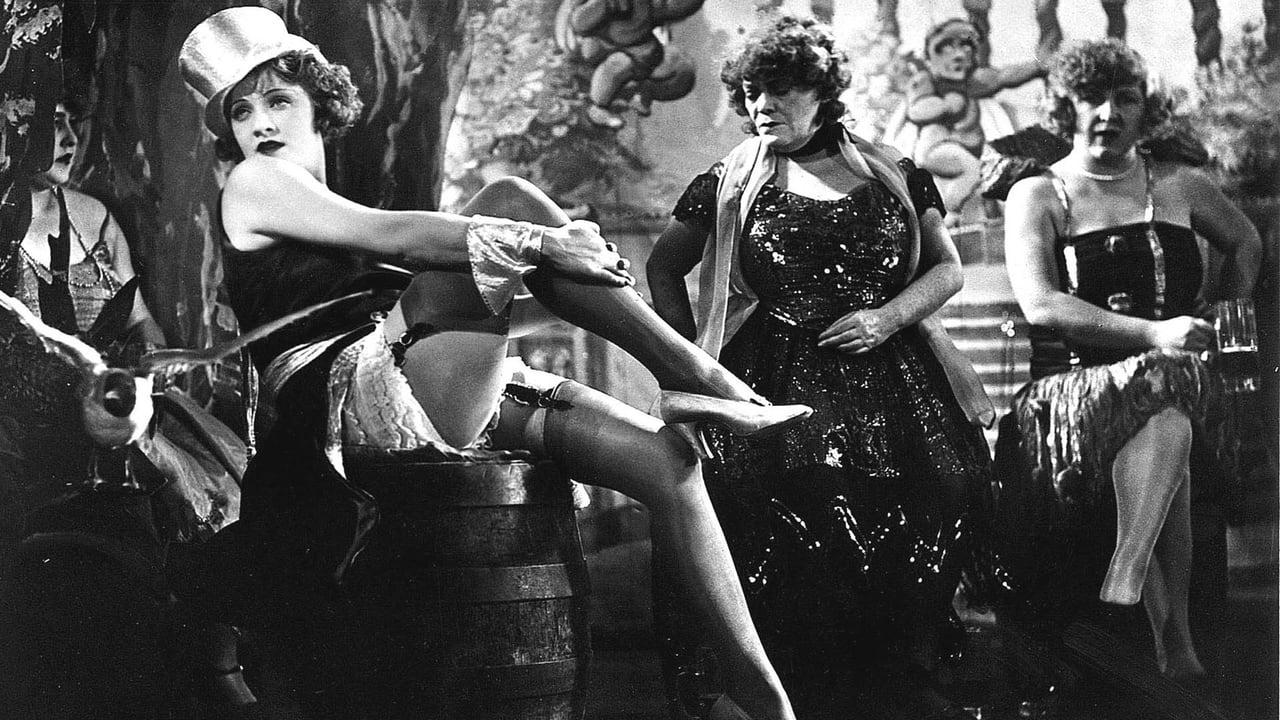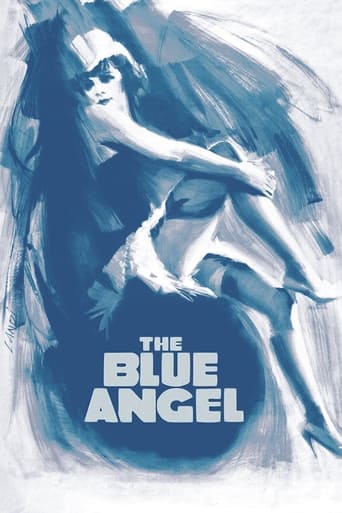Matcollis
This Movie Can Only Be Described With One Word.
Boobirt
Stylish but barely mediocre overall
Brendon Jones
It’s fine. It's literally the definition of a fine movie. You’ve seen it before, you know every beat and outcome before the characters even do. Only question is how much escapism you’re looking for.
Juana
what a terribly boring film. I'm sorry but this is absolutely not deserving of best picture and will be forgotten quickly. Entertaining and engaging cinema? No. Nothing performances with flat faces and mistaking silence for subtlety.
blanche-2
"The Blue Angel" from 1930 made a star out of Marlene Dietrich and has a great performance by Emil Jannings. It's a very dark tale of obsession leading to degradation.The film is based on a novel by Heinrich Mann directed by Josef von Sternberg. It concerns a professor (Jannings) who goes to a club, The Blue Angel, where he learns his students go, and meets the hypnotic Lola (Dietrich). He falls in love with her, marries her, and starts down a road that leads to hell.This is a movie about images -- a dead bird, the magnificent Lola, Jannings as a clown, his descent into madness, his image in a mirror, and the final shot of him, utterly destroyed, at his old professor desk.This is German filmmaking at its best. Von Sternberg and Dietrich would head for America; Jannings, a Nazi collaborator, would stay put. Later Dietrich called him a "ham." He does give a big performance, but somehow, it isn't over the top. On a side note - Jannings was the winner of the first Academy Award, but in reality, he placed second. The winner? Rin Tin Tin. The Academy believed it wouldn't put them in a good light to give the award to a dog, so they denied Rin his award and gave it to Jannings instead. It's said he used to carry it with him.
finetunes
1. What the heck did Lola see in Immanuel? 2. This was the longest one hour movie ever made. 3. Marlene hadn't lost her baby fat by the time of this movie nor had her voice hit puberty. 4. Was that pancake or cocaine that Lola blew in Immanuel's face? 5. Strongmen have come a long way since the 30's. 6. That bird in the hat trick never gets old. 7. "Dishonored" was much better than this movie and Marlene was even sexier. 8. Everybody laughed when Immanuel crowed when he got married but not so much at the end of the movie.
l_rawjalaurence
THE BLUE ANGEL may have a hackneyed, quasi-melodramatic plot, but it is quite simply brilliant nonetheless. In her debut feature, Marlene Dietrich is both sexy and dominant; photographed in a variety of states of déshabillée by Von Sternberg, she come across as someone with an instinctive feel for the camera. Her songs are beautifully delivered, and her sheer presence within the frame is a delight. Emil Jannings is equally memorable as the gulled professor; in a film showing its origins in silent movies, he has a range of gestures and eye-work that are tremendously funny, especially in those sequences where he tries to keep his class of unruly students quiet, or when he tries yet fails to suppress his amorous feelings for Lola (Dietrich). The film's ending is both shocking and yet poignant, showing the depths to which humankind can be reduced once love gets in the way. When the Professor chases Lola for the final time, uttering the unearthly screams of a cockerel, we feel genuinely concerned for her safety. As with most UFA films of this period, THE BLUE ANGEL is distinguished by atmospheric lighting and use of shadows, especially in its portrayal of the seedy back-streets where the Blue Angel club is situated. Definitely a classic of its kind that stands up really well after eight decades.
funkyfry
I can't say much about this film, having just seen it for the first time, but while I was impressed with Von Sternberg's direction, as usual, I felt that this film lacked substance and drive. The story is too predictable; maybe at its time, it had some novelty. I hoped that the road would twist in some unpredictable direction, but it simply loped along to its predictably depressing conclusion.Jannings and Dietrich are wonderfully cast and carry off their roles with perfection. Less convincing is Kurt Gerron's magician -- he seems like he would belong more as a bar-tender than as an impresario. The touches of humor are odd.... I found myself uncertain at times whether it was a comedy or a drama. Certainly, the film makes Jannings' imperious school professor a subject of so much ridicule that his fall from grace comes more as a relief than a tragedy.One would hope to find minor characters with some flash to add some interest to a simple story, but only Hans Albers' strongman can really make much of an impression next to Jannings and Dietrich.It's a pleasing film to watch, I enjoyed much of the atmosphere and so forth, but it didn't make much of a lasting impression on me I'm afraid.

